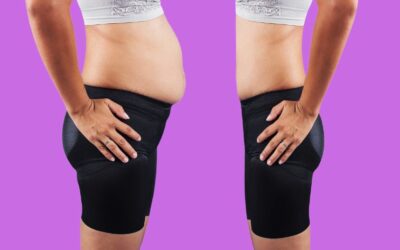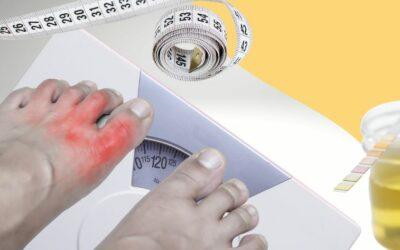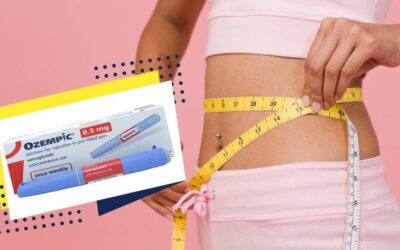I am often asked, “What are the ideal keto macros for weight loss?” First, I want to start out with the definition of what “oxidative priority” is when referencing how to make your body burn fat.
What is Oxidative Priority?
Oxidative Priority refers to the order of fuel sources the body burns for energy, and those fuel sources include alcohol, exogenous ketones, carbohydrates and sugar, protein, and fat. The end goal is to essentially burn body fat. So how do we get there?
What Does Your Body Burn First?
1. Alcohol
Don’t kill me. I am not telling you to never drink, but you should know what happens when you do, especially if your goal is weight loss.
Whether we like it or not, alcohol is viewed by our bodies as a poison. Essentially the body stops burning fat or any other calories, and says “We need to get rid of this poison ASAP!” There is no storage capacity for alcohol in the body, and this is why it is the body’s first priority to get it out. This is why you can get alcohol poisoning — when the blood has more than it can metabolize, there is nowhere for it to go. Alcohol has only a 15% effect on thermogenesis, meaning for every 100 calories ingested, 85 of those are calories to burn.
Alcohol also messes with your hormones. It has been shown to increase your estrogen, one of the 3 Fat Storing hormones, and that beer belly that can develop is also known as the “estrogen belly”. This is in men and women. It would make sense that it also decreases testosterone. Testosterone is the “good feeling” hormone that gives you energy, sex drive, and a drive for life. Testosterone is important for both men and women.
Alcohol is also known to stimulate your appetite. So not only does it take away your judgment on what to eat, it makes you want to eat more. Lastly, there’s no need for it biologically.
Do I think you should never drink again? No, I’m not saying that. However, if you are trying to lose weight, alcohol immediately stops fat burning, as your liver wants to get rid of this poison, and your liver is where the fat burning occurs. After you reach your weight loss goal, there are keto approved alcohol drinks you can enjoy.
2. Exogenous Ketones
Exogenous Ketones, or ketones that you take in, are the second fuel source your body will burn. There is no storage capacity for these ketones. They are not biologically needed because your body can make all the ketones it needs from fat when it’s keto adapted.
Having said that, I personally like taking ketones daily because I get a mental bump in energy and sustained physical energy when I need to perform. I do believe they can be helpful for people switching from the Standard American Diet to a low-carb ketogenic diet initially. It makes the transition very easy, helps reduce sugar and carb cravings, and suppresses the appetite. It also helps you get through that slump when your body is transitioning into fat burning. That does not mean that more is better! You want to take just enough to achieve that effect without taking too much which will delay the fat burning in the end.
When keto first became popular, people started measuring and comparing how high their ketone levels were in their blood, thinking more is better. You can drink lots of MCT oil and eat fat bombs showing high ketone levels and gain weight at the same time. Your body will burn the ketones before it starts burning any carbs, protein or body fat. You will actually have low levels of ketones after exercise as you are burning through them. As you become keto adapted, your levels will get lower as your body starts using them more efficiently. Furthermore, if you are on the thinner side you will have less ketones in the blood because you have less body fat to burn.
Accelerated Keto®™ is not only composed of exogenous ketones, but has the natural co-factors that increase the fat burning, increase ATP production and D-fat your liver. It goes way beyond just a ketone supplement.
3. Carbohydrates
This includes fruits and vegetables; they are carbohydrates.
People commonly ask, “What fruits can you eat on keto?” Unfortunately, most fruits are very high in carbs. Some Keto approved fruits would include avocado, olives, and coconuts. Vegetables that are green have a lot less carbohydrates in them with plenty of fiber, so they are the preferred carbs on a ketogenic diet.
Fruits are full of sugar and the carbs can add up quickly. For instance, an apple has between 15 and 25 grams of carbs. On a typical ketogenic diet they recommend having 20 grams of carbs in a day, so with one apple you have eaten your carb allocation for the entire day! If you choose vegetables like salad, cabbage, asparagus, mushrooms, or cauliflower, you can eat many more without having the carbs add up.
The body has the ability to store between 1200 and 2000 calories of carbs. If your body has more than that to store, it will start packing those carbs into fat cells with the use of insulin, the second fat-storing hormone. Insulin’s job is to take sugar and carbs, direct them into fat cells, and get it out of the blood. Carbs need the highest amount of insulin out of all the macronutrients. They are also not very satiating and can trigger more hunger after eating. After your insulin increases and your body stores those calories in the fat cells, your blood sugar drops to cause another burst of hunger within one to two hours. Your blood sugar is on a constant roller coaster, causing swings of hunger and satisfaction.
Don’t you find it interesting that you could sit down and have a bag of potato chips with no problem but have a hard time binging on rib eye steak? You do not biologically need carbohydrates. Your body can make all the glucose it needs when you are keto-adapted from glycerol or stored fat or protein.
Some argue that you need carbs for gut health. On the contrary, collagen is much better at feeding the gut flora than carbohydrates. Furthermore, many carbohydrates like grains, beans and breads are actually “anti-nutrients” where they do not provide you nutrients, and they actually steal nutrients out of the body in addition to causing leaky gut. So when you are looking at carbohydrates you want to stick with the low-carb green vegetables.
4. Protein
Protein is the fourth macro-nutrient to be use as a fuel source. The body only has a storage capacity of 300 to 400 calories and the thermogenic effect of protein is 25%. This is why you might get “hot” as you’re eating steak; it heats up your body. This also means that for every 100 calories you eat, 25 of those calories are burned through digestion and thermogenesis.
Your body needs protein for muscle protein synthesis, building that lean muscle mass. It is very expensive to turn protein into fuel or glucose, so the body only does that if it fuels off of sugar and is not in fat burning mode. If your body is burning sugar and runs out of sugar, it will start eating away at your muscle fibers and looking for protein to burn.
Protein is essential to build lean muscle mass, needed for hair growth, and also needed for your thyroid. Many people who switch to a vegan diet find that their thyroid health plummets, and they end up gaining weight. It is very difficult to get all of the needed amino acids through a vegan diet.
5. Fat
The very last macro-nutrient that your body will burn for fuel is fat.
Theoretically there’s an unlimited storage capacity on the body to store fat. It needs the smallest amount of insulin to utilize it. However, it does raise insulin just a little bit and enough to stop fat burning and break your fast. It is more satiating than the other macronutrients, and it is biologically essential to make hormones, absorb vitamins like A, D, E and K for our cellular health.
When keto first became very popular, there was this belief that you could eat as much fat as you wanted and lose weight. This is not true. Your body needs to be on a calorie deficit diet in order to start burning its own fat. However by eating a higher fat diet, and being keto adapted, your body switches from burning fat that you eat to fat that is on your body seamlessly without touching that expensive protein and muscle mass in your body.
How to Switch to Keto For Fat Loss and Why It Works
Alcohol and the Keto Diet
If you are wanting weight loss, then you definitely need to abstain from alcohol until you reach your goal. There are Keto friendly alcohol drinks that you can have in moderation after you have reached your goal.
Take Exogenous Ketones
Exogenous Ketones are helpful to transition you into fat burning mode, suppress your appetite and make you feel good. You don’t want to take too many so that your body never burns its own body fat.
Throw Out the Carbs
If you are eating carbohydrates, your body will burn those and not touch the body fat as a fuel source. As you are eating carbohydrates, keeping your body out of ketosis and burning sugar for fuel, it will go straight from those carbohydrates to looking for more glucose, and cause intense sugar cravings.
In the absence of fueling on more sugar and carbs, your body will also start eating away at your expensive muscle mass. It starts turning your muscle protein into sugar through gluconeogenesis. We want to stay away from that. The Keto Diet Carbohydrates that will keep your insulin levels low and allow for fat burning mostly consist of green vegetables.
Protein and Fat: The Last Two Standing
When you look at the composition of most animal proteins, there is a combination of fat and protein in the meat that is usually a 1:1 ratio in grams, and that is why I believe it is the best protein source for lean muscle and fat loss simultaneously; you do not need to add an abundance of butter and oil to your food to get into ketosis. In Ketosis, your body will preserve that valuable muscle mass and go straight to burning its own fat.
When you are keto-adapted you are primed to look for fat for fuel and that can be fat from your diet or fat from your body. This allows you to incorporate intermittent fasting as your body is not in “starvation mode” and is constantly “snacking” on your body fat throughout the day. There is no reason for your body to enter starvation mode when it registers an unlimited amount of fat for fuel on the body that it can access. Contrary to popular belief, this actually increases your metabolic rate. If you eat a low calorie diet, consisting of six meals a day, and you are a sugar burner, you will lower your metabolism.
Remember, let’s go back to how much fuel your body can store of each macronutrient. It can only store a certain amount of glucose and carbs so when you run out of those, your body thinks it’s going to starve. On the other hand, fat storage is unlimited on the body. So you will never run out of that storage, and your body knows that, so when it is looking for fat to burn it knows it has an unlimited supply and there’s no need to starve or lower its metabolic rate.
A popular thing to do now on a ketogenic diet is to have a “fat coffee” where you put butter, coconut oil or MCT oil in your morning drink. That can be a way to satisfy your hunger, but it does break a fast because fat does raise insulin just a little bit. Your body is going to burn those fat calories before touching the body fat. My recommendation is to have no calories during your intermittent fasting period.
For weight loss, help with curbing appetite, and increased energy, I would reach for the Accelerated Keto®™ to put you in that fat burning mode, and your body will then start using its own fat stores. Also, when you actually chew food, it signals hormones in your brain like leptin and ghrelin that tell your brain you are satisfied. When you are drinking fat in your coffee, you are not getting that satisfaction nor are you getting any thermogenic effect from that added fat. On the other hand, when you eat steak, eggs, chicken, lamb or fish, which is a combination of fat and protein, you are getting an increased thermogenic effect. The amount of calories your body is taking in is more than what your body will store. For instance if you have 500 calories of meat, it really only has the effect of 400 calories.
How Do You Reach Keto Adaptation?
1. Keep Carbs Low
Shoot for Less than 20g because you probably will be ingesting more. I recommend those carbs from your protein sources or low-calorie green vegetables with lots of fiber. You don’t need that fiber, but it can help with feeling full when you are switching to a ketogenic diet.
2. Use Exogenous Ketones
Accelerated Keto®™ exogenous ketones are the best keto pills for weight loss on the market. They help you to get started with extra brain and physical energy, cut sugar cravings, help your body learn to burn fat for fuel, and clean the fat out of the liver.
3. Meet Your Protein Goal
Shoot for .8 times your lean body mass in grams per day. If you are a hundred pounds overweight, you want to calculate that number according to your ideal weight and not your current weight.
4. Use Fat to Feel Satiated
If you do the first three things, you may not need as much fat as you think. If you find yourself hungry still, add a little more fat and protein. You can gain weight on a ketogenic diet because calories still do matter. However when your insulin levels stay low, it is much easier to have your body burn and not store fat than it is on a Standard American Diet.
5. Take Your Electrolytes
If you don’t have the proper amount of sodium, potassium and magnesium, you will hit a “wall”, be very tired and feel symptoms such as headaches and lethargy. As you are switching to a ketogenic diet, your kidneys release water weight and let go of those electrolytes. I recommend Ola Loa as it covers all the basics you need for the electrolytes, minerals, amino acids and vitamins as well.
6. Eat Salt
We live in a society that tells you to be on a low-salt diet but you have to remember all of the processed foods on the Standard American Diet are full of sodium that we are unaware of. Additionally your kidneys hold onto salt and water with a Standard American diet. Salt on a Keto Diet is very different; when you switch to a ketogenic or carnivore diet, you are eating whole foods that don’t naturally have much sodium in them and your body is also letting go of water, salt and electrolytes.
You want to use a high quality salt like Accelerated Ancient Salt™ that is full of all of the electrolytes in addition to being free of the microplastics found in most salt. Many use salt to relieve constipation, as it is low salt and not a lack of fiber that can cause constipation.
7. Drink More Water
As you switch to a ketogenic diet your kidneys release more water and electrolytes. You need to drink more water to replace the water you are losing.
8. Don’t Get Overwhelmed with Complicated Recipes
Eating Keto does not have to be difficult and can be super easy. I recommend planning ahead. As you are switching over to a low-carb diet you will naturally need to eat less frequently, giving you so much more free time. I recommend using Maria Emmerich’s recipes, as she has the best keto cookbooks.
9. Ask for Substitutions at Restaurants
You are paying them and you are the customer. In today’s world, more and more people have dietary restrictions whether they are vegan, gluten-free or now keto. I actually have an easier time at a restaurant eating keto than someone who is vegan. Ask for your protein with double vegetables and no starch.
10. Don’t Do It Alone
You can utilize easy keto cookbooks or Pinterest to look up any easy carnivore or keto recipe. If you know you need someone to coach you along, find a health coach or let me help you get started. I am happy to troubleshoot with you to find out where you are hitting a plateau or overcome whatever obstacle that is keeping you from reaching your goal.
Sara Banta
Sara Banta is a Stanford University Graduate with a Degree in Economics and Psychology, and a certified Natural Supplement Expert & Graduate of the Institute for Integrative Nutrition. Sara is the Founder of Accelerated Health Products and host of the health & wellness podcast, Accelerated Health Radio.









